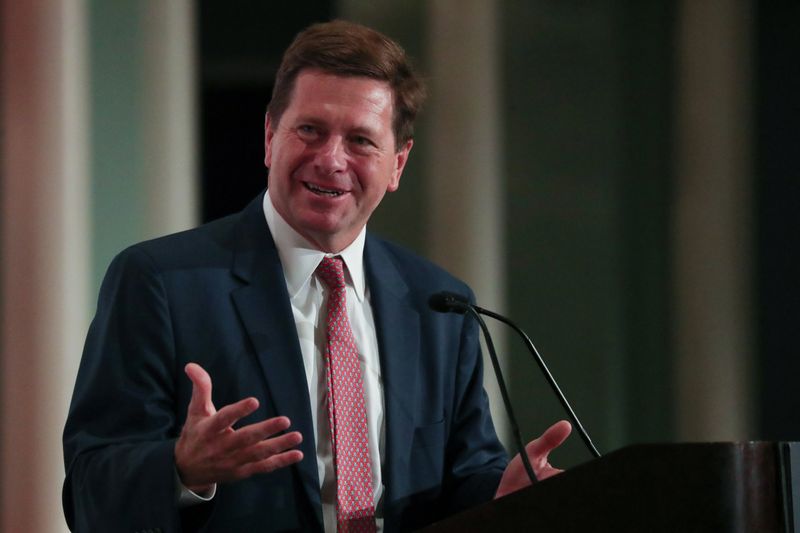This post was originally published on this site
https://i-invdn-com.akamaized.net/trkd-images/LYNXMPEG2T22O_L.jpg
WASHINGTON (Reuters) – The head of the U.S. Securities and Exchange Commission said on Monday that it should not ban short-selling of shares, amid speculation on further measures the agency might take to arrest a market rout that stems from fears the coronavirus will spark a global recession.
The statement, by SEC Chairman Jay Clayton, comes after other countries, including Spain, Italy and South Korea, have moved to curtail short-sellers, who borrow shares and then sell them, betting their price will fall before the short-sellers buy back the shares and return them, pocketing the difference.
“You need to be able to be on the short side of the market in order to facilitate ordinary market trading,” Clayton said in an interview on CNBC on Monday, adding that he understands the concerns by some investors but does not favor a ban.
In 1938, the SEC adopted a so-called uptick rule to prevent short-sellers from putting more pressure on a security that was quickly declining but pulled it back in 2007 as electronic trading began to take over Wall Street.
Later, in 2010, the SEC adopted an alternative uptick rule that imposed restrictions on short-selling only when a stock has triggered a circuit breaker by declining in price by at least 10 percent in one day. Under the alternative rule, once the price of the security is above the current national best bid, the practice, which critics say can exacerbate market moves amid panic selling, is permitted.
On Monday, Clayton added that the agency is monitoring concerns of trading whipsaw during extreme volatility.
“We need market integrity, but we believe we’re taking care of it with the alternative uptick rule,” added Clayton.
Some analysts say short-selling bans undermine free markets, as well as limit accurate asset pricing and dampen trading volumes, which in turn raises transaction costs for all investors. Even more, others point out that bourses already have safeguards like circuit breakers to slow markets during bouts of extreme volatility.
The effectiveness of short-selling bans has also been questioned by some academics and institutions, including the Federal Reserve Bank of New York.
“The current U.S. short-selling framework has held up amid heavy volumes and is serving its purpose. Adding restrictions will only make the current problem worse,” said Michael Pedroni, an international policy expert at the Washington-based hedge fund lobbying group Managed Funds Association.

